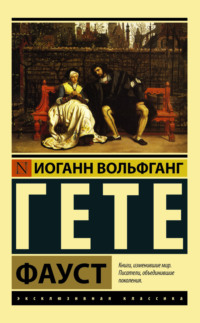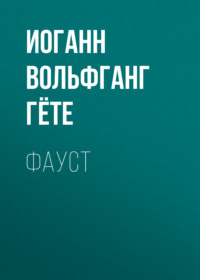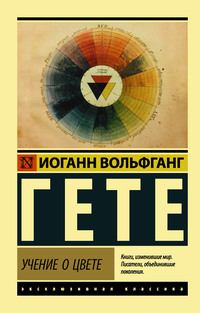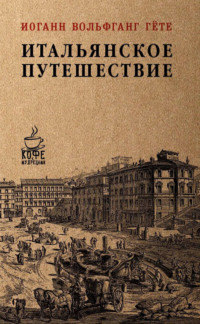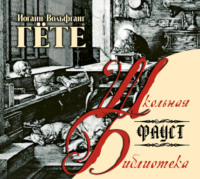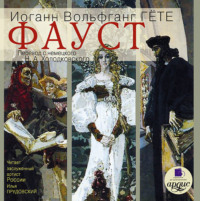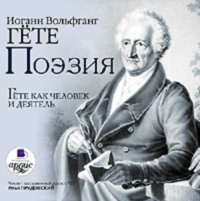
Letters from Switzerland and Travels in Italy
Unfortunately, we in our youth had seen none but family coins, which say nothing, and the coins of the Cæsars, which repeat to satiety the same profile – portraits of rulers, who are to be regarded as any thing but models of humanity. How sadly had our youth been confined to a shapeless Palestine, and to a shape perplexing Rome! Sicily and Nova Grecia give me hopes again of a fresh existence.
That on these subjects I should enter into general reflections, is a proof that as yet I do not understand much about them: yet that, with all the rest, will in degrees be improved.
Palermo, Thursday, April 12, 1787.
Yesterday evening, a wish of mine was gratified, and that in a very singular fashion. I was standing on the pavement of the principal street, joking at the window with the shop-keeper, I formerly mentioned, when suddenly, a courier, tall and well-dressed, came up to me, and quickly poked a silver salver before me, on which were several copper coins, and a few pieces of silver. As I could not make out what it all meant, I shook my head, and shrugged my shoulders, the usual token by which in this country you get rid of those whose address or question you either cannot, or do not wish, to understand.
"What does all this mean?" I asked of my friend the shop-keeper, who, with a very significant mien, and somewhat stealthily, pointed to a lank and haggard gentleman, who, elegantly dressed, was walking with great dignity and indifference, through the dung and dirt. Frizzled and powdered, with his hat under his arm, in a silken vest, with his sword by his side, and having a neat shoe ornamented with a jewelled buckle – the old man walked on calmly and sorrowfully. All eyes were directed towards him.
"It is the Prince Pallagonia," said the dealer, "who, from time to time, goes through the city collecting money to ransom the slaves in Barbary. It is true, he does not get much by his collection, but the object is kept in memory; and so it often happens that those who, in their life-time, were backward in giving, leave large legacies at their death. The prince has for many years been at the head of this society, and has done a great deal of good."
"Instead of wasting so much on the follies of his country house," I cried, "he might have spent the same large sum on this object. Then no prince in the world would have accomplished more."
To this the shopkeeper rejoined: "But is not that the way with us all? We are ready enough to pay for our own follies. Our virtues for their support must look to the purses of others."
Palermo, April 13, 1787.
Count Borck has very diligently worked before us in the mineralogy of Sicily, and whoever of the same mind visits the island after him, must willingly acknowledge his obligations to him. I feel it a pleasure, no less than a duty, to celebrate the memory of my predecessor. And what am I more than a forerunner of others yet to be, both in my travels and life.
However, the industry of the Count seems to me to have been greater than his knowledge. He appears to have gone to work with a certain reserve, which is altogether opposed to that stern earnestness with which grand objects should be treated.
Sicily – Palermo
Nevertheless, his essay in quarto, which is exclusively devoted to the mineralogy of Sicily, has been of great use to me; and, prepared by it, I was able to profit by my visit to the Quarries which formerly, when it was the custom to case the churches and altars with marble and agate, were more busily worked, though even now they are not idle. I purchased at them specimens of the hard and soft stones: for it is thus that they usually designate the marble and agate, chiefly because a difference of price mainly depends on this difference of quality. But, besides these, they have still another for a material which is the produce of the fire of their kilns. In these, after each burning, they find a sort of glassy flux, which in colour varies from the lightest to the darkest, and even blackest blue. These lumps are, like other stones, cut into thin lamina, and then pierced according to the height of their colour and their purity, and are successfully employed in the place of lapis lazuli, in the decoration of churches, altars, and sepulchral monuments.
A complete collection, such as I wished, is not to be had at present; it is to be sent after me to Naples. The agates are of the greatest beauty; especially such as are variegated with irregular pieces of yellow or red jasper, and with white, and as it were frozen quartz, which produce the most beautiful effect.
A very accurate imitation of these agates, produced by lake colouring on the back of thin plates of glass, is the only rational thing that I observed the other day among the Pallagonian follies. Such imitations are far better for decorations than the real agate, since the latter are only found in very small pieces, whereas the size of the former depends on nothing but the size of the artist's plate. This contrivance of art well deserves to be imitated.
Palermo, April 13, 1787.
Italy without Sicily leaves no image on the soul: here is the key to all.
Of the climate, it is impossible to say enough. It is now rainy weather, but not uninterruptedly wet: yesterday it thundered and lightened, and to day all is intensely green. The flax has in places already put forth joints – in others it is boiling. Looking down from the hills, one fancies one sees in the plain below little ponds; so beautifully blue-green are the flax fields here and there. Living objects without number surround you. And my companion is an excellent fellow, the true Hoffegut (Hopeful) and I honestly sustain the part of the True friend. He has already made some beautiful sketches, and will take still more before we go. What a prospect – to return home some day, happy, and with all these treasures!
Of the meat and drink here, in the country, I have said nothing as yet; however, it is by no means an indifferent matter. The garden stuffs are excellent, especially the lettuce; which is particularly tender, with a milky taste: it makes one understand at once why the ancients termed it lactuca. The oil and wine of all kinds very good; and it might be still better if more care were bestowed on its preparation: – Fish of the very best and tenderest. We have had, too, very good beef, though generally people do not praise it.
Now, after dinner, to the window! – to the streets! A malefactor has just been pardoned – an event which takes place every year in honour of the festival of Easter. The brethren of some order or other led him to the foot of a gallows, which had been erected for sake of the ceremony: then the criminal at the foot of the ladder offers up a prayer or two; and having kissed the scaffold, is led away again. He was a good-looking fellow of the middle age, in a white coat, white hat, and all else white. He carried his hat in his hand; at different points they attached variegated ribbons to him, so that at last he was quite in tune to go to any masquerade in the character of a shepherd.
Palermo, April 13 and 14, 1787.
So then, before my departure, I was to meet with a strange adventure, of which I must forthwith give you a circumstantial account.
Sicily – Palermo
The whole time of my residence here, I have heard scarcely any topic of conversation at the ordinary, but Cagliostro, his origin and adventures. The people of Palermo are all unanimous in asserting that a certain Joseph Balsamo was born in their city, and having rendered himself infamous by many disgraceful acts, was banished. But whether this person is identical with the Count Cagliostro, was a point on which opinions were divided. Some who knew Balsamo personally asserted they recognized his features in the engraving, which is well known in Germany, and which has also travelled as far as Palermo.
In one of these conversations, one of the guests referred to the trouble which a Palermitan lawyer had taken in examining this matter. He seems to have been commissioned by the French Ministry to trace the origin of an individual, who, in the face of France, and, indeed, of the whole world, had had the temerity to utter the silliest of idle tales in the midst of a legal process which involved the most important interests and the reputation of the highest personages.
This lawyer, it was asserted, had prepared the pedigree of Giuseppe Balsamo, together with an explanatory memoir and documentary proofs. It has been forwarded to France, where in all probability public use will be made of it.
As I expressed a wish to form the acquaintance of this lawyer, of whom besides people spoke very highly, the person who had recounted these facts offered to mention me to him and to introduce me.
After a few days we paid him a visit, and found him busily engaged with his clients. When he had dismissed them and we had taken a luncheon, he produced a manuscript which contained a transcript of Cagliostro's pedigree, and the rough draught of the memoir which had been sent to France.
He laid the genealogy before me, and gave me the necessary explanations, of which I shall here give you as much as is necessary to facilitate the understanding of the whole business.
Giuseppe Balsamo's great-grandfather on his mother's side was Matteo Martello. The maiden name of his great-grand-mother is unknown. The issue of this marriage was two daughters; Maria, who married Giuseppe Bracconerie, and the grandmother of Giuseppe Balsamo – and Vincenza, married to Giuseppe Cagliostro, who was born in a little village called La Noava, about eight miles from Messina. (I must note here that there are at this moment living at Messina two bellfounders of this name.) This great aunt was subsequently godmother of Giuseppe Balsamo, who was named after his great uncle, and at last in foreign countries assumed also the surname of this relation.
The Bracconerie had three children, – Felicitá, Mattéo, and Antonia.
Felicitá was married to Piedro Balsamo, who was the son of Antonia Balsamo, ribbon dealer in Palermo, and probably of Jewish descent. Piedro Balsamo, the father of the notorious Giuseppe, became bankrupt, and died in his five-and-fortieth year. His widow, who is still living, had born him, besides the above-named Giuseppe Giovanna – Giuseppe Maria, who married Giovanna Battista Capitummino, who begot three children of her body, and died.
The memoir, which was read to us by its obliging author, and was at my request lent to me for a few days, was founded on baptismal and marriage certificates and other instruments which he had with great diligence collected. It contains pretty nearly (as I conclude from a comparison with a summary which I then made) all the circumstances which have lately been made better known to the world by the acts of the legal process at Borne, viz., that Giuseppe Balsamo was born at Palermo, in the beginning of June, 1743, and that at his baptism he was received back from the priest's arms by Vincenza Cagliostro (whose maiden name was Martello); that in his youth he took the habit of an order of the Brothers of Mercy, which paid particular attention to the sick; that he soon showed great talent and skill for medicine, but that for his disorderly practices he was expelled the order, and thereupon set up in Palermo as a dealer in magic, and treasure finder.
Palermo – Count Cagliostro
His great dexterity in imitating every kind of handwriting was not allowed by him to lie idle. He falsified or rather forged altogether an ancient document, by which the possession of some lands was brought into litigation. He was soon an object of suspicion, and cast into prison; but made his escape, and was cited to appear under penalty of outlawry. He passed through Calabria towards Rome, where he married the daughter of a belt-maker. From Rome he came back to Naples, under the name of the Marchese Pellegrini. He even ventured to pay a visit to Palermo, was recognized, and taken prisoner, and made his escape in a manner that well deserves being circumstantially detailed.
One of the principal nobles of Sicily, who possessed very large property, and held several important posts at the Neapolitan court, had a son, who to a frame of unusual strength and an uncontrollable temper united all the wanton excesses which the rich and great, without education, can think themselves privileged to indulge in.
Donna Lorenza had managed to attract him, and on him the pretended Marchese Pellegrini relied for impunity. The Prince avowed openly his patronage of this couple of new comers, and set no bounds to his rage when Giuseppe Balsamo, at the instance of the party whom he had injured, was a second time cast into prison. He had recourse to various means to obtain his liberation; and, when these were unsuccessful, in the very ante-room of the President's court, he threatened the advocate of the opposite party with the most dreadful consequences if he did not consent to the release of Balsamo. As the opposing advocate refused his consent, he rushed upon him, struck him, knocked him down and kicked him, and was only with difficulty restrained from further violence when the judge, hearing the noise, rushed in and commanded peace.
The latter, a weak and cringing character, had not the courage to punish the wrong-doer; the opposite party, advocate and all, were men of little minds; and so Balsamo was set at liberty, without, however, any record of his liberation being found among the proceedings – neither by whose orders or in what manner it was effected.
Shortly after this he left Palermo, and traveled in different countries; of which travels, however, the author of the memoir had been only able to collect very imperfect information.
The memoir ended with an acute argument to prove the identity of Balsamo and Cagliostro, – a position which was at this time more difficult to prove than at present, now that the whole history of this individual has been made public.
Had I not been led to form a conjecture that a public use would have been made in France of this essay, and that on my return I should find it already in print, I doubt not but I should have been permitted to take a transcript of it, and to give my friends and the public an early account of many interesting circumstances.
However, we have received the fullest account, (and even more particulars than this memoir contains,) from a quarter which usually is the source of nothing but errors. Who would have believed that Rome would ever have done so much for the enlightening of the world, and for the utter exposure of an impostor, as she has done by publishing the summary of the proceedings in this case? For although this work ought and might be much more interesting, it is nevertheless an excellent document in the hands of every rational mind, who cannot but feel deep regret to see the deceived, and those who were not more deceived than deceivers, going on for years admiring this man and his mummeries; feeling themselves by fellowship with him raised above the common mass, and from the heights of their credulous vanity pitying if not despising the sound common sense of mankind in general.
Who was not willingly silent all the while? And even now, at last, when the whole affair is ended and placed beyond dispute, it is only with difficulty that I can bring myself, in order to complete the official account, to communicate some particulars which have here become known to me.
When I found in the genealogy so many persons (especially his mother and sisters) mentioned as still living, I expressed to the author of the memoir a wish to see them, and to form the acquaintance of the other relatives of so notorious an individual. He remarked that it would be difficult to bring it about, since these persons, poor but respectable, and living very retired, were not accustomed to receive visitors, and that their natural suspicion would be roused by any attempt of the kind. However, he was ready to send to me his copying clerk, who had access to the family, and by whose means he had procured the information and documents out of which the pedigree had been compiled.
Palermo – Count Cagliostro
The next day his amanuensis made his appearance, and expressed several scruples upon the matter. "I have, hitherto," he said, "carefully avoided coming within sight of these persons. For, in order to get into my hands the certificates of baptism and marriage, so as to be able to take legally authenticated copies of them, I was obliged to have recourse to a little trick. I took occasion to speak of some little family property that was somehow or other unclaimed; made it appear probable to them that the young Capitummino was entitled to it; but I told them that first of all it was necessary to make out a pedigree, in order to see how far the youth could establish his claim: that, however, his success must eventually depend upon law proceedings, which I would willingly undertake on condition of receiving for my trouble a fair proportion of the amount recovered. The good people readily assented to everything. I got possession of the papers I wanted, took copies of them, and finished the pedigree; since then, however, I have cautiously kept out of their sight. A few weeks ago old Capitummino met me, and it was only by pleading the tardiness with which such matters usually proceed that I managed to excuse myself."
Thus spoke the copyist. As, however, I stuck to my purpose, after some consideration he consented to take me to their house, and suggested that it would be best for me to give myself out to be an Englishman, who had brought to the family tidings of Cagliostro, who, immediately after his release from the Bastille, had proceeded to London.
At the appointed hour – about two o'clock in the afternoon – we set out on our expedition. The house was situated in the corner of a narrow lane, not far from the great street, "Il Casaro." We ascended a few wretched steps, and entered at once upon the kitchen. A woman of the middle size, strong and broad, without being fat, was busy washing up the cooking utensils. She was neatly and cleanly clad, and as we entered, turned up the corner of her apron, in order to conceal from us its dirty front. She seemed glad to see my guide, and exclaimed, "Do you bring us good news, Signor Giovanni? Have you obtained a decree?"
He replied, "No! I have not as yet been able to do anything in our matter. However, here is a foreigner who brings you a greeting from your brother, and who can give you an account of his present state and abode."
The greeting that I was to bring did not exactly stand in our bond. However, the introduction was now made. "You know my brother?" she asked me. "All Europe knows him," I replied, "and I am sure you will be glad to hear that he is at present safe and well; for assuredly you must have been in great anxiety about him." "Walk in," she said, "I will follow you immediately;" and so, with the copying-clerk, I entered the sitting-room.
It was spacious and lofty, and would pass with us for a saloon. It seemed, however, to form the whole dwelling of the family. A single window lighted the large walls, which were once coloured, and around which figures of the Saints – taken in black – hung in gilt frames. Two large beds, without curtains, stood against one wall, while a brown press, which had the shape of an escritoire, was placed against the opposite one. Old chairs, with rush bottoms, the backs of which seemed once to have been gilded, stood on each side of it; while the bricks of the floors were in many places sunk deep below the level. In other respects, everything was clean and tidy, and we made our way towards the family, who were gathered around the only large window at the other end of the room.
While my guide was explaining to the old widow Balsamo, who sat in the corner, the cause of our visit, and in consequence of the deafness of the good old woman, had frequently to repeat his words, I had time to observe the room and the rest of its occupants. A young girl, of about sixteen years of age, well grown, whose features, however, the small-pox had robbed of all expression, was standing at the window; by her side a young man, whose unpleasant countenance, sadly disfigured by the small-pox, also struck me. In an arm-chair, opposite the window, sat, or rather reclined, a sick and sadly deformed person, who seemed to be afflicted with a sort of torpor.
When my guide had made himself understood, they compelled us to sit down. The old woman put some questions to me, which I required to have interpreted before I could answer them, as I was not very familiar with the Sicilian dialect.
Palermo – Count Cagliostro
I was pleased with the examination, which, during this conversation, I made of the old woman. She was of middle size, but of a good figure; over her regular features an expression of calmness was diffused, which people usually enjoy who are deprived of hearing; the tone of her voice was soft and agreeable.
I answered her questions, and my answers had, in their turn, to be interpreted to her.
The slowness of such a dialogue gave me an opportunity of weighing my words. I told her that her son having been acquitted in France, was at present in London, where he had been well received. The joy which she expressed at this news was accompanied with exclamations of a heartfelt piety, and now, as she spoke louder and slower I could understand her better.
In the meanwhile her daughter had come in, and had seated herself by the side of my guide, who faithfully repeated to her what I had been saying. She had tied on a clean apron, and arranged her hair under a net. The more I looked at her, and compared her with her mother, the more surprised was I at the difference of their persons. A lively, healthy sensibility spoke in every feature of the daughter; she was, in all probability, about forty years old. With lovely blue eyes, she looked cautiously around, without, however, my being able to trace the least symptom of suspicion. As she sat, her figure seemed to promise greater height than it showed when she stood up; her posture bespoke determination; she sat with her body bent forwards, and her hands resting on her knees. Moreover, her full, rather than sharp profile, reminded me of the portraits of her brother, which I had seen in engravings. She asked me several questions about my travels: about my purpose in visiting Sicily, and would persuade herself that I should most assuredly come back again, and keep with them the Festival of S. Rosalie.
The grandmother having, in the mean time, put some questions to me, while I was busied in answering them, the daughter was speaking in a half whisper to my guide; so that my curiosity was stimulated to ask what they were talking about. Upon this he said, Donna Capitummino was just telling him that her brother owed her fourteen once. In order to facilitate his rapid departure from Palermo, she had redeemed some of his things which were in pawn; but since then she had not heard a word from him, nor received any money, nor help of any kind, although, as she had heard, he possessed great wealth, and kept a princely establishment. Would I not engage on my return, at the first favourable moment to remind him of this debt, and to get him to make them an allowance – nay, would I not take a letter to him, or at least frank one to him? I offered to do so. She asked me where I lived? and where she could send me the letter. I avoided giving her my address, and engaged to call myself for the letter on the evening of the next day.
She then recounted to me her pitiable situation: she was a widow, with three children: one girl was being educated in a nunnery, the other was here at home; and her son was gone to school. Besides these three children she had her mother on her hands, for whose support she must provide, and besides all this, out of Christian love she had taken into her house the unfortunate sick person-and thus augmented her miseries – all her industry scarcely sufficed to furnish herself and children with the very barest necessaries. She well knew that God would reward all such good works; still she could not help sighing beneath the heavy burthen she had so long borne.
The young people joined in the conversation, and the dialogue became livelier. While I was speaking to the others I heard the old woman ask her daughter if I belonged to their holy religion. I was able to observe that the daughter skilfully parried the question by assuring her mother (as well as I could make out her words) that the stranger appeared well disposed towards them; and that it was not proper to question any one all at once on this point.


